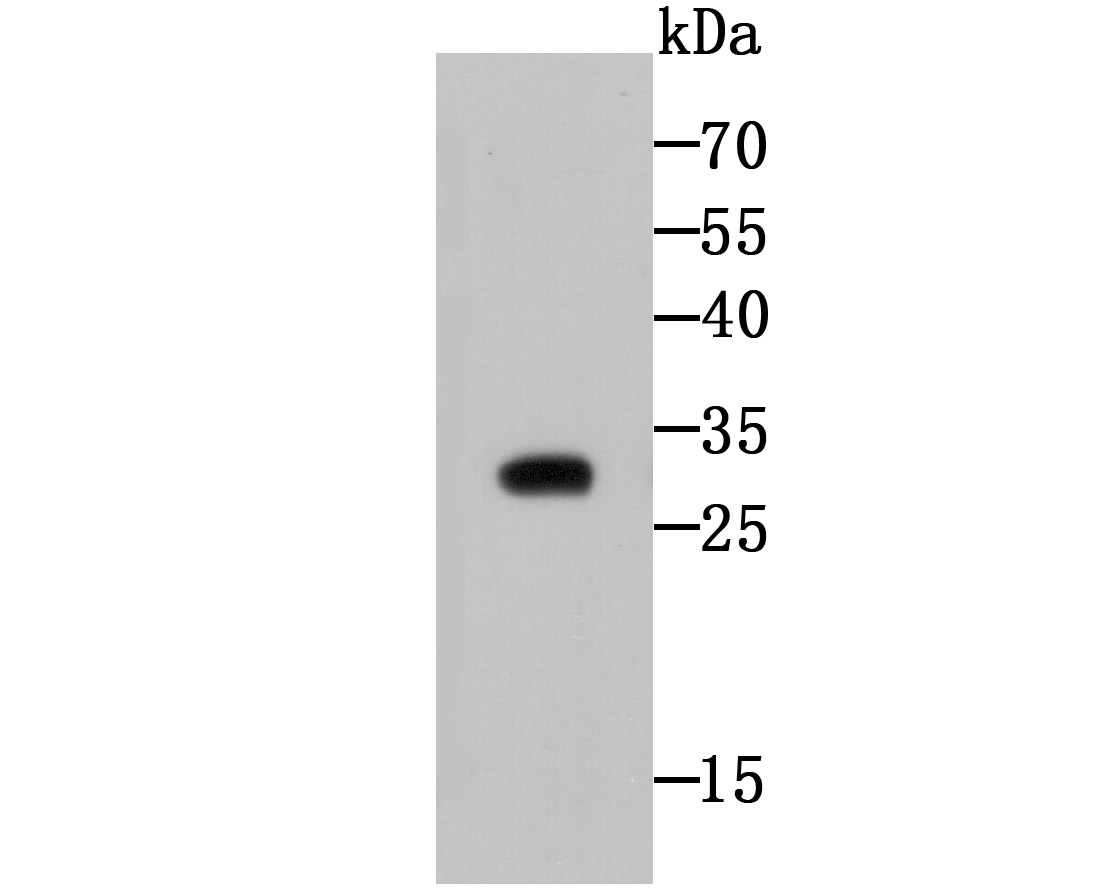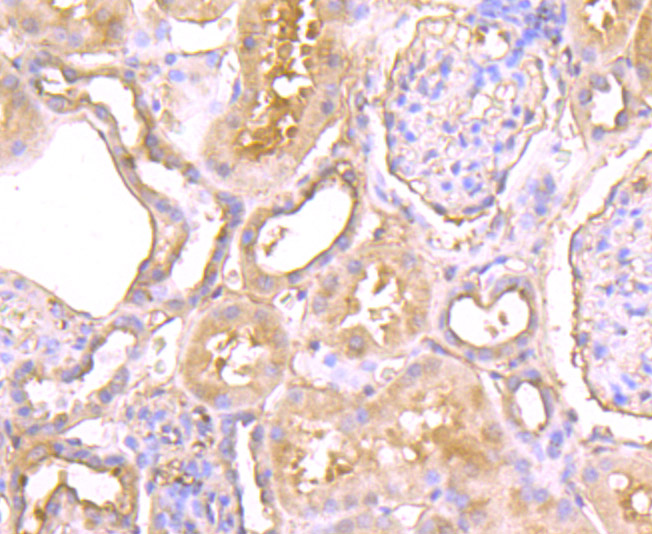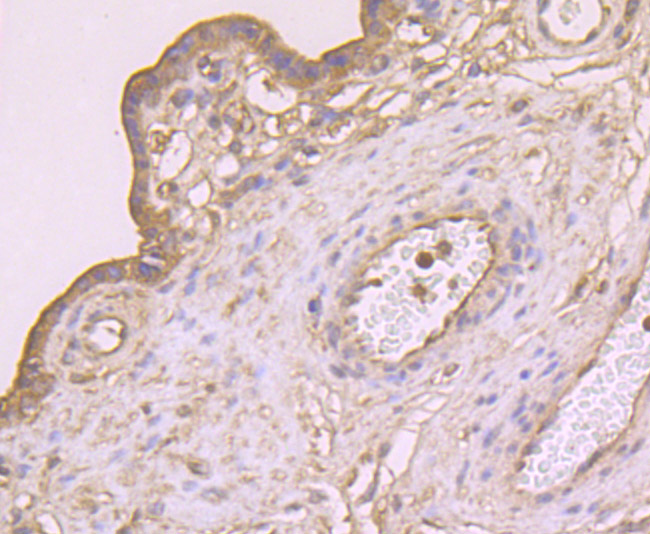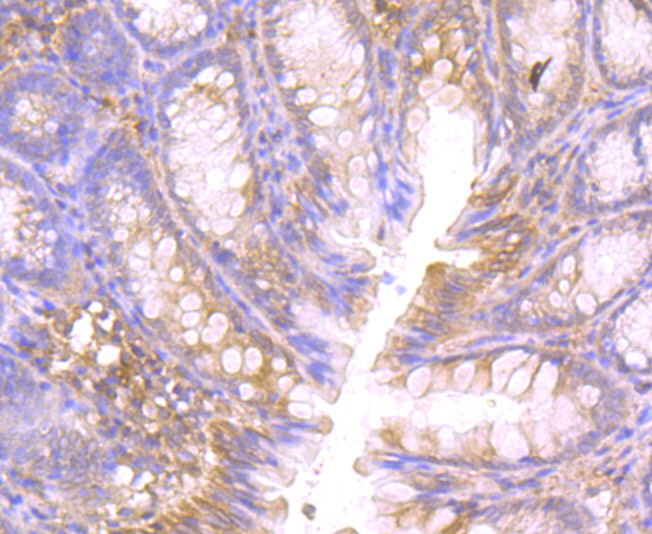Product Detail
Product NameCTHRC1 Antibody
Clone No.5H1
Host SpeciesMouse
ClonalityMonoclonal
PurificationProA affinity purified.
ApplicationsWB,IHC
Species ReactivityHu, Ms, Rt
Immunogen DescRecombinant protein
ConjugateUnconjugated
Other NamesCollagen triple helix repeat containing 1 antibody
Collagen triple helix repeat containing protein 1 antibody
Collagen triple helix repeat-containing protein 1 antibody
CTHR1_HUMAN antibody
Cthrc1 antibody
NMTC1 protein antibody
Protein NMTC1 antibody
Accession NoSwiss-Prot#:Q96CG8
Uniprot
Q96CG8
Gene ID
115908;
Calculated MW26 kDa
Formulation1*TBS (pH7.4), 0.5%BSA, 50%Glycerol. Preservative: 0.05% Sodium Azide.
StorageStore at -20˚C
Application Details
WB: 1:500-1:1,000
IHC: 1:50-1:200
Western blot analysis of CTHRC1 on CTHRC1 recombinant protein using anti-CTHRC1 antibody at 1/500 dilution.
Immunohistochemical analysis of paraffin-embedded human kidney tissue using anti-CTHRC1 antibody. Counter stained with hematoxylin.
Immunohistochemical analysis of paraffin-embedded human placenta tissue using anti-CTHRC1 antibody. Counter stained with hematoxylin.
Immunohistochemical analysis of paraffin-embedded rat large intestine tissue using anti-CTHRC1 antibody. Counter stained with hematoxylin.
CTHRC1 (collagen triple helix repeat containing 1) is a 243 amino acid secreted protein that localizes to the extracellular matrix and contains one collagen-like domain. Expressed as two alternatively spliced isoforms, the first of which is expressed in calcified atherosclerotic plaque and chondrocyte-like cells, CTHRC1 is thought to function as a negative regulator of collagen matrix deposition and may also play a role in the stabilization of ligand-receptor interactions in the Wnt pathway. CTHRC1 is widely present in a variety of cancers, including melanoma and breast carcinoma, and may participate in cancer cell migration and cancer tissue invasion and metastasis. The gene encoding CTHRC1 maps to human chromosome 8, which consists of nearly 146 million base pairs, houses more than 800 genes and is associated with a variety of diseases and malignancies.
If you have published an article using product 48364, please notify us so that we can cite your literature.






 Yes
Yes



